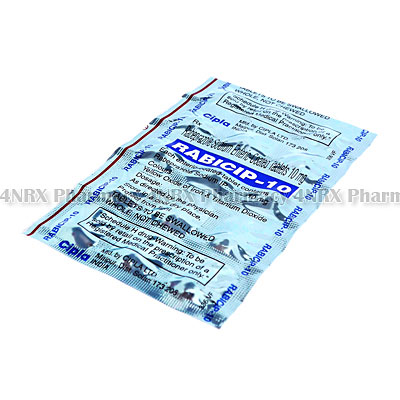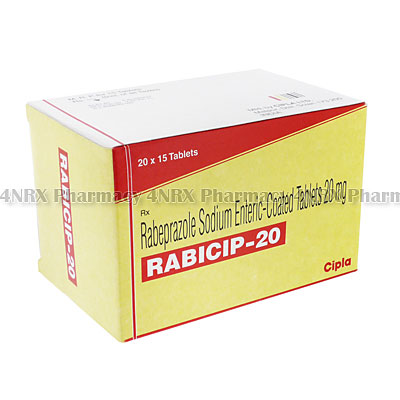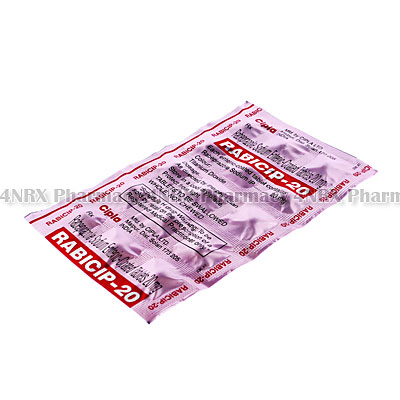 |
Home  Stomach Stomach  Rabicip (Rabeprazole Sodium) Rabicip (Rabeprazole Sodium) |
|
|||||||||
|
Rabicip (Rabeprazole Sodium)
What is Rabicip (Rabeprazole Sodium) used for? Rabicip (Rabeprazole Sodium) belongs to a class of medications called proton pump inhibitors, which are prescribed to patients suffering from problems affecting the stomach and esophagus. Problems it is used to treat include ulcers, acid reflux, Zollinger Ellison syndrome and other related conditions. This drug can help to provide relief from the heartburn, difficulty swallowing, while also decreasing the amount of acid produced by the stomach. How should I use Rabicip (Rabeprazole Sodium)? The dosage for Rabicip (Rabeprazole Sodium) varies, and will be decided by your physician. Some patients treating ulcer may be told to take this medication after the morning meal. If you are taking this drug in combination with other medications to treat H. pylori, you may be told to take it twice per day, with your morning and evening meals for a period of 7 days. The dosage for other conditions varies. Follow the advice of your physician. What are the side effects of Rabicip (Rabeprazole Sodium)? Side effects of Rabicip (Rabeprazole Sodium) include:
If any of these side effects become bothersome, or if you notice any other side effects, such as seizures, uncontrolled muscle movements or muscle cramps, you should immediately consult your physician. Please Note Patients taking this medication should be aware that there is an increased risk of a serious condition known as Clostridium difficile-associated diarrhea associated with this drug. Patients taking this drug may be at an increased risk of bone fracture. Strictly follow all instructions provided to you by your physician or pharmacist while using Rabicip (Rabeprazole Sodium). Optimum and safe dosage can differ based on the patient and the condition being treated. As this medication may be unsafe for certain patients, it is essential you always inform your physician if you are pregnant or breastfeeding, as well as if you have any allergies, other illnesses, or ongoing health conditions, and if you are taking any other form of medication, supplements, or herbal products. Immediately seek emergency medical care if you have any allergic or hypersensitive reaction. Common signs of a reaction include hives, swelling, skin rashes, chest pains, as well as trouble breathing or swallowing. 



|
|||||||||||||||||